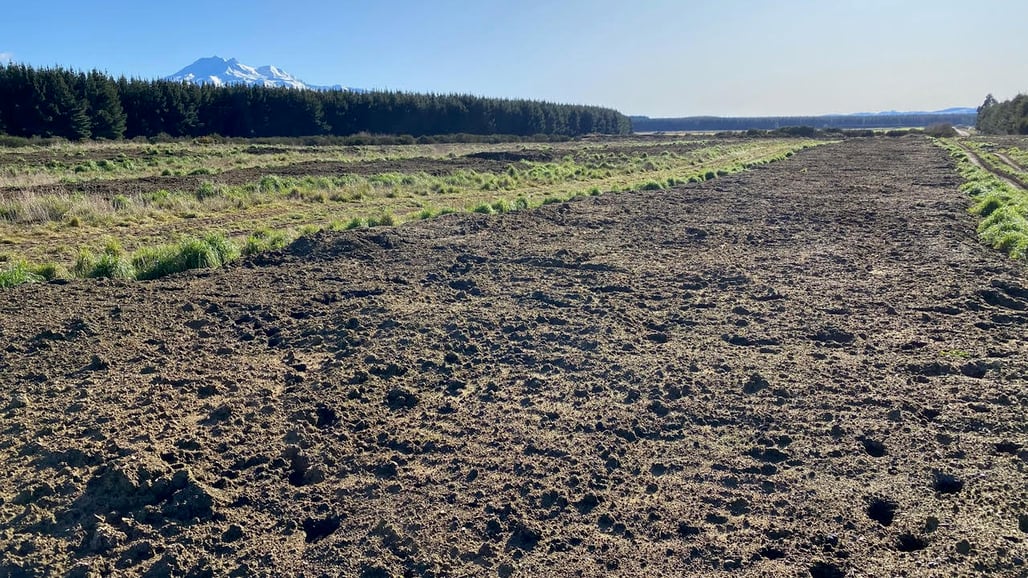
Made possible by the continuous efforts of a few billion pencil-sized underground workers, MyNoke’s goals are simple – reducing the staggering amount of organic waste that ends up at the landfill and producing a valuable resource that enriches the soil.
With a process that is full circle - soil back to soil - MyNoke enables sustainable practices by council, agriculture, horticulture and industry, while reducing negative environmental effects such as nutrient loss and emission of greenhouse gases into the environment, as cited by the Ministry for the Environment, here.
MyNoke is in the business of vermicomposting (‘vermis’ is the Latin word for ‘worm’), or worm composting. It’s a low cost, eco-biotechnological process of organic waste management that’s 600 million years old, utilising earthworms to transform organic material into a valuable soil amendment.
Earthworms are used to turn tonnes of food scraps, other organic waste materials and by-products into pure, mature earthworm castings, also known as vermicast. The result a natural product that is ideal for pasture, cropping, horticulture, landscaping, topsoil, potting mixes and gardens.
The solution found in nature
MyNoke (‘noke’ is the Te Reo Māori word for earthworm) was founded in 2007 by soil scientist Dr Michael Quintern. He came to New Zealand from Germany in 2006 to work as a Technical Manager for the Forest Research Institute (now known as Scion) that specialises in research, science and technology development for forestry, wood-derived products and materials, and other biomaterial sectors.
Dr Quintern was tasked with looking at organic waste solutions and how these can be applied to the land. Part of his role was finding a solution for the country’s pulp, paper and cardboard waste. The pulp and paper industry produces 250,000 tonnes of waste fibre annually, a source which can't be utilised and had to either be burned or sent to the landfill.
That’s when he first discovered worm farming and the incredible benefits of vermicast as a soil conditioner. At the time, small-scale worm farms were already being utilised by environmentally conscious Kiwis who wanted to reduce their household waste and turn organic waste into a valuable compost for the garden.
Driven by a strong desire to see a circular economy in action, where organic resources and the nutrients they contain are returned to the soil, Dr Quintern and his team decided to take this incredible technology further, from a bathtub size operation to an industrial scale.
Initial trials to apply raw organic waste (feedstock) to farmland for worms to vermicompost were successful and soon after, the team was out in the fields with truckloads of organic waste. Today, MyNoke employs 25 people at their Taupō office and vermicomposting sites in Taupō, Tokoroa, and Ohakune.
Healthier soil and better yields
Taking a closer look at vermicomposting and its benefits, all sorts of organic wastes, ranging from kitchen scraps and paper, to municipal biosolids and sludges from industrial food, are broken down through the gut of the earthworm. The process is economical, environmentally friendly, and produces a useful soil conditioner that promotes healthier plant growth and has a positive impact on soil structure which can lead to increased yields.
Looking at the ratios, the typical nutritional values of vermicast includes approximately 30% organic matter, 1% nitrogen, 0.5% phosphorus, sulphur, potassium, magnesium, calcium, sodium, and it has a carbon to nitrogen ratio of 15 which means it is a mature, stable humus.
Kiwi farmers and growers increasingly recognise how useful vermicast is as the advantages are plentiful. It mitigates nutrient losses, is rich in beneficial microbes and fungi, and protects against drought and plant disease. Because it contains many nutrients, vermicast is an effective soil conditioner and over time, it significantly improves soil structure, texture, and aeration.
Benefits of vermicast summarised
The use of vermicast has both physical benefits (changing the soil structure, holding nutrients and moisture) and microbial benefits (such as the release of nutrients and protection from pathogens).
Vermicast:
- Builds humus levels
- Improves nitrogen use efficiency
- Boosts root growth
- Increases soil water-holding capacity
- Adds beneficial soil fungi and microorganisms
- Regulates the pH in the soil
- Increases crop yield and quality
Find out more about the advantages of vermicast here.
Opportunities for the future
Since its humble beginnings in 2007 with 20 buckets of earthworms, MyNoke is now recognised as the world’s largest worm farming operation. To date, MyNoke has diverted more than 1.4 million tonnes of organic waste from landfill.
The company’s focus on the circular economy aligns with the Government’s strategy for the next three decades – that is aimed at creating a low-emissions, low-waste society and resilience to the impacts of climate change.
With the levies for landfills increasing and many of New Zealand’s soils being heavily affected by erosion and intensive land use, potential for the industrial and primary sectors to utilise vermicomposting as a circular solution to organic waste management is increasing. This is why, with the support of local and regional councils, farmers and growers, further opportunities for growth are being explored.
MyNoke offers an environmentally sensible disposal arrangement to councils, manufacturers and other organisations that produce large volume organic waste materials or by-products (such as pulp, paper and cardboard by-products, dairy sludge, biosolids and animal processing waste).
As real change begins at grassroots level, the MyNoke team also dedicates both time and resources to championing sustainable initiatives locally. Passionate about promoting the concept of a circular economy, MyNoke often collaborates with community groups and schools to educate on soil health, spread the word about the value of worm farm products, and show people with a hands-on approach how waste minimisation and a healthier environment can be achieved.
View The MyNoke Journey video below, or contact our team at info@mynoke.co.nz for more information.
